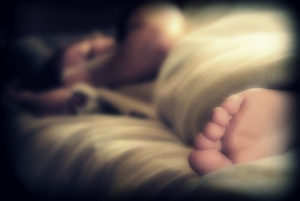The 10 Myths of Sleep
By: Other | May 3, 2019

Written by Haim Shemer, Psy.D.
Are you sleepless in San Diego? Does the mystery of falling fast to sleep keep you up at night? That sleep plays a critical role in our daily functioning is an undisputed fact. Giving sleep the attention it deserves constitutes a major contribution to overall mental and physical health. Many of us, however, may have a distorted view of our sleep needs.
I want to share with you an article by Sandee LaMotte of CNN, which focuses on the 10 most common — and false — assumptions we can make about our sleep.
1. Adults need five or fewer hours of sleep.
Although research studies indicate that we should sleep anywhere from 7 to 10 hours of sleep each night, many in the US believe that getting less than 5 hours is “just fine.” Further research shows that consistently getting 5 hours of sleep or less increases the risk for cardiovascular disease and early mortality.
2. It’s healthy to be able to fall asleep anywhere, anytime.
Sleep experts state that instantly falling asleep anytime, anywhere, is a sign that you are not getting enough sleep, an indication of your body’s exhaustion. Such ‘micro sleeps’ are the body’s way of repaying the sleep debt.
3. Your brain and body can adapt to less sleep.
Sleep experts say that the body goes through four distinct phases of sleep to fully restore itself and that the human body cannot adapt to less sleep. In stages one and two, we transition from light sleep to becoming more disengaged from the environment. In stages three and four, we enter into deep sleep and REM sleep, which is the important phase of sleep responsible for storing memories, regulating mood, learning, and dreaming. We have several cycles of these four phases nightly; having less sleep would mean not entering some of these phases as needed.
4. Snoring is mostly harmless.
Loud snores are often an indication of sleep apnea, a condition that increases the risk of heart attacks, asthma, atrial fibrillation, high blood pressure, cancer, diabetes, as well as cognitive and behavior disorders, according to the National Heart, Lung, and Blood Institute.
5. Drinking alcohol before bed helps you fall asleep.
Alcohol may help you fall asleep but it prevents you from entering the deep sleep stages. Keeping you at the lighter sleep stages reduces the quality of your rest at night.
6. Not sleeping?Stay in bed with eyes closed and try and try.
Experts say that if you continue to stay in bed more than 15 minutes you will start associating your bed with insomnia. Healthy sleepers generally fall asleep within 15 minutes of entering bed. The best remedy for those who do not is to get out of bed and change the environment until feeling sleepy again.
7. It doesn’t matter what time of day you sleep.
Humans have a biological clock called the circadian rhythm, which experts claim is responsible for healthy and consistent sleep schedules. The circadian rhythm controls the hormones of the body, eating and digestion, sleep-wake cycles, as well as body temperature. Being out of synch with our inner clock and outside world leads to a sense of disorientation, feeling sleepy and mentally foggy. Jet lag is a common example of this effect.
8. Watching TV in bed helps you relax.
TVs, laptops, smartphones and such, all emit bright blue light which alerts our brains into wakefulness. According to the National Sleep Foundation, this light suppresses the release of the sleep hormone, melatonin, making it more difficult to fall asleep quickly.
9. Hitting snooze is great! No need to get up right away.
Using the snooze button normally causes you to fall back to sleep into a very light and low quality sleep. Once we reach the end of our sleep for the night, we are most likely ending a REM cycle. Hitting snooze falls us back to a new REM cycle, only to wake up minutes later in the middle of it feeling groggy for a long while.
10. Remembering your dreams is a sign of good sleep.
To the contrary according to a study in France. Experts agree that all of us have 4-5 dreams each night. The French study reported that those who tend to remember their dreams better woke up in the middle of the night twice as much and were more sensitive to sound when asleep or awake.
I hope that sharing this information helps the folks out there who struggle with sleep at night. We can behaviorally and cognitively impact our sleep in positive ways. By looking at our current sleep behaviors, beliefs, assumptions and adjusting accordingly using the 10 myths above are good ways to start.
If you still struggle with sleep, consider also meeting with a professional therapist. The Psychologists at Therapy Changes are specially trained in assist you in improved sleep, emotional states, and overall well-being.
Image: Becky Wetherington on flickr and reproduced under Creative Commons 2.0



